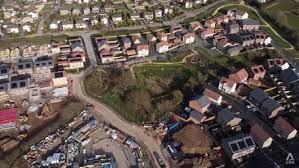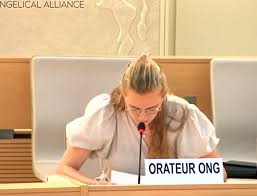Housing shortage becomes key election issue in the UK

London: A housing shortage in Britain has become a hot-button issue ahead of an expected general election in the second half of this year.
This comes as the country is short of 4.3 million homes, according to some reports.
Politicians are now trying to walk a fine line between promising more houses and protecting the British landscape, with changes to planning laws dividing opinion.
The opposition Labour Party has pledged to ‘bulldoze’ planning red tape to kickstart a house building boom. The Conservative government has similar plans, but is juggling the need for more houses with opposition to a planning revolution from traditionally older and more wealthy voters.
The deficit, coupled with a growing population, is driving up home prices and making it increasingly difficult for young buyers to get on the property ladder.
Prospective home buyer Victoria Holland, for instance, has not been able to get her own house in London, despite having a good job and being flexible about where she lives.
“I’m in a position where I’m living is fine,” she said. “But you are not moving forward in life. You are standing still; you are not progressing; you are not buying the home that you want and that you should be able to.”
There are not enough affordable properties for first-time buyers, added Ms Holland.
“You are going to get outbid because there’s so many people going for the same price house. So you’ve got to outbid, you’ve got to have that little bit more.”
The current high interest rates have also been a problem for millions of others in a similar position.
Mortgages have become unaffordable for many people, forcing them to keep renting.
This has driven up rents, and also means prospective buyers cannot save the deposit that they need to purchase a house, said observers.
Many believe that this vicious cycle can only be resolved by building houses on a large scale.
The government has estimated that 300,000 new homes are needed each year. However, current figures, at just above 200,000, are short of that target.
The Home Builders Federation, which represents the home building industry in England and Wales, said delays in the development and planning process have been the biggest challenges to constructing new homes.
The only way first-time buyers can get on the property ladder is to “buy a bit of a wreck” that can then be worked on and improved, says Parker’s Estate Agents director Andrew Simmonds.
The housing issue is becoming increasingly politicised, with a general election looming.
“Sustainable development must be at the heart of our planning system,” said British Prime Minister Rishi Sunak, who had told reporters that Britain is expected to hold a general election in the second half of this year.
“That is why we are committed to meeting the housing needs of our communities by building the right homes in the right places, making sure that everyone makes best use of brownfield land, and conserving our countryside. I have been crystal clear, we must protect agricultural land,” he added.
The fear of housing developments encroaching on England’s green and pleasant lands – the so-called green belt – is most keenly felt in commuter towns and villages.
In Backwell village in southwest England, for instance, there are plans for more than 500 new houses.
But locals opposing the development have fought a lengthy campaign against it, which is now being reviewed by the local authority.
Across the nation, home prices are more than eight times the average salary, with that figure being far higher in London and other popular areas.
Property agents see a continued demand for affordable housing.
“We’ve had a couple of years of really buoyant sales, with properties selling for over (the asking price, and) with multiple offers. Now, we are back to a more normalised market where we are taking time to sell,” said Parker’s Estate Agents director Andrew Simmonds.
The only way first-time buyers can get on the property ladder is to “buy a bit of a wreck” that can then be worked on and improved, Mr Simmonds added.
“But it’s a bit of a false economy, because if they’ve got to do so much to it, it might be purchased at a cheap price but actually they are having to invest that much more in it.”





